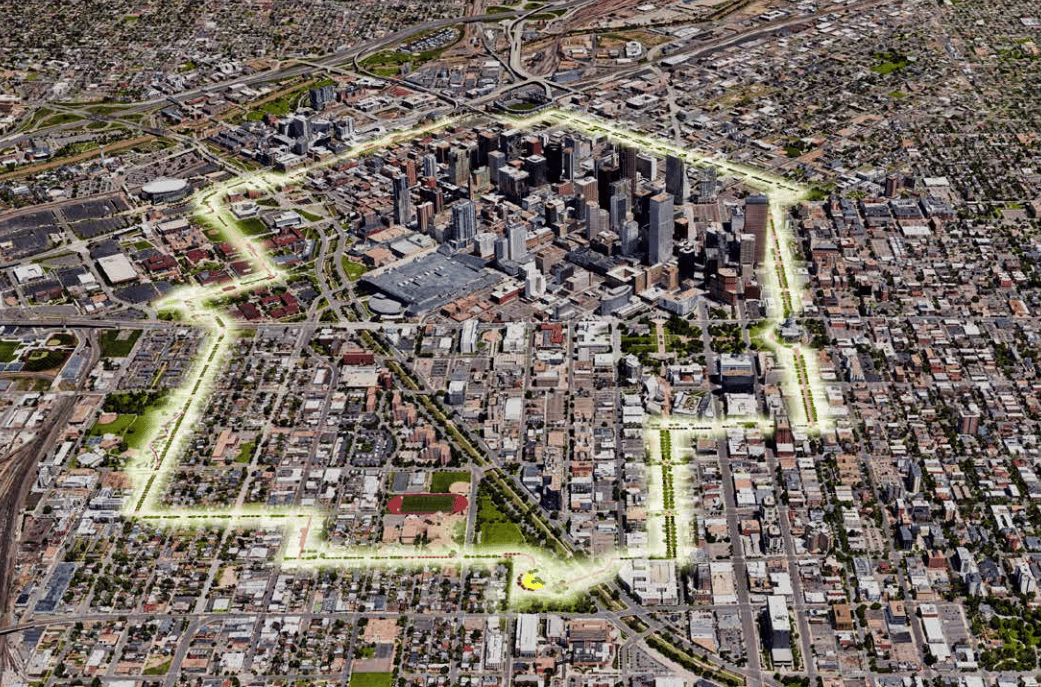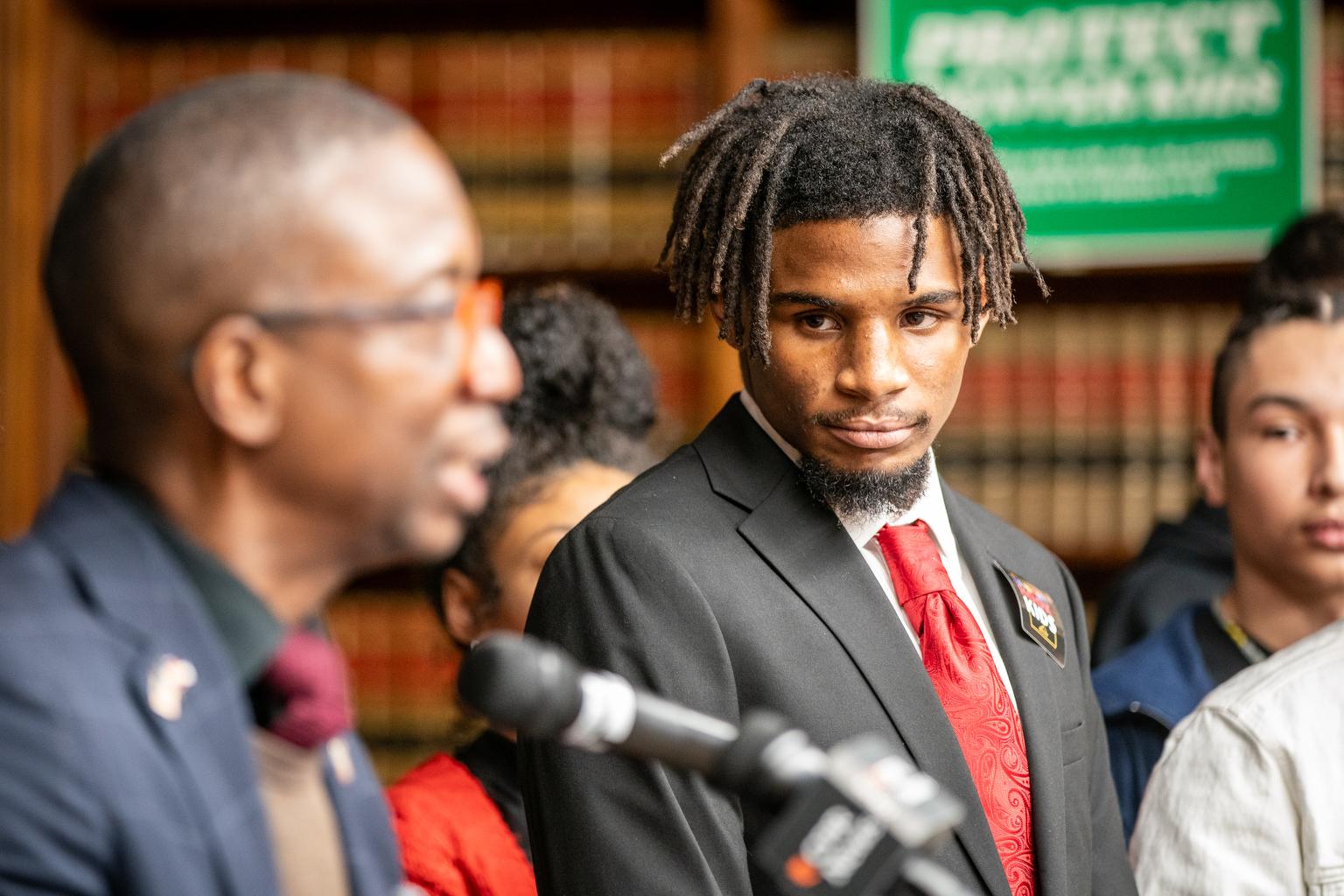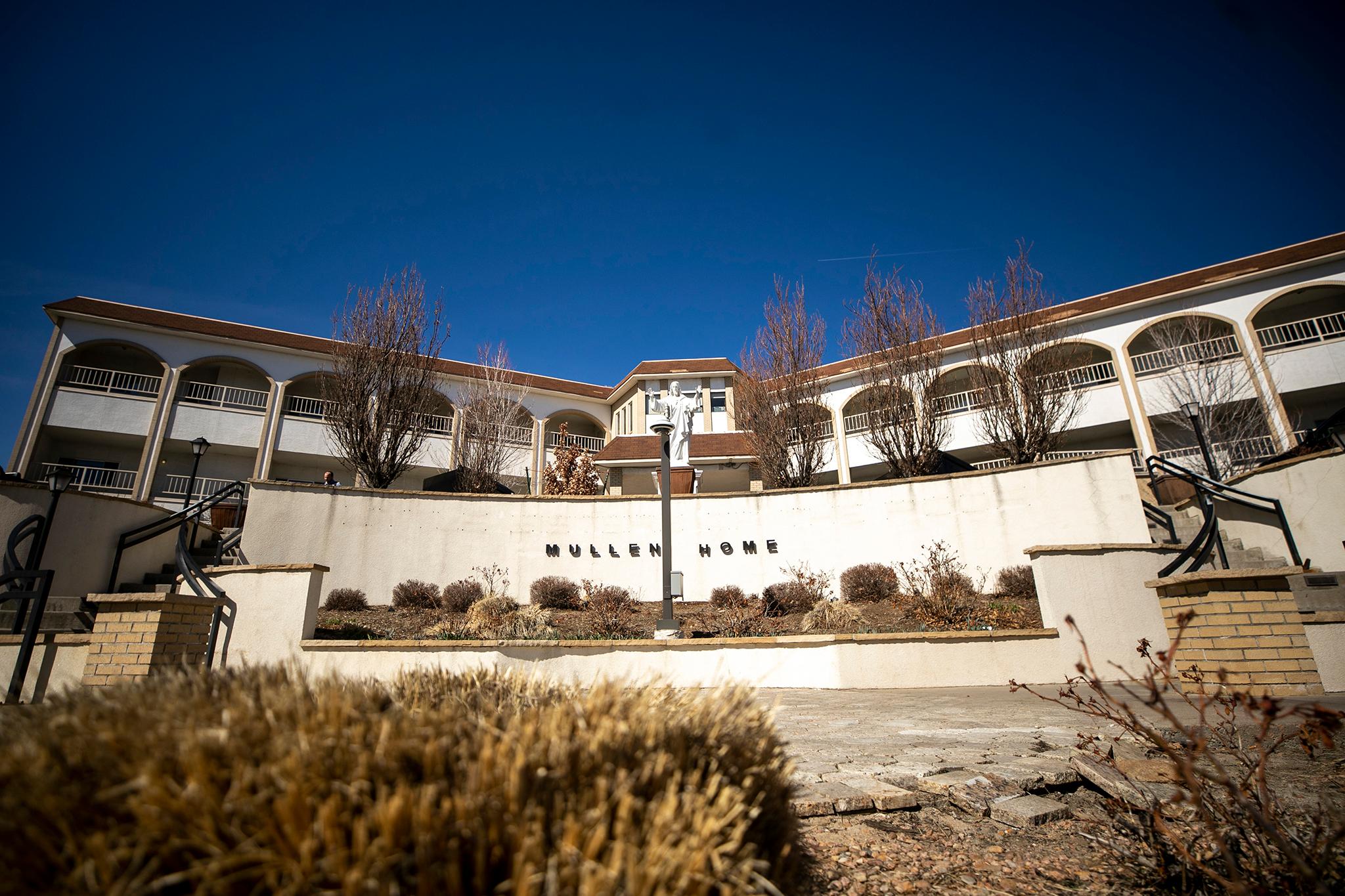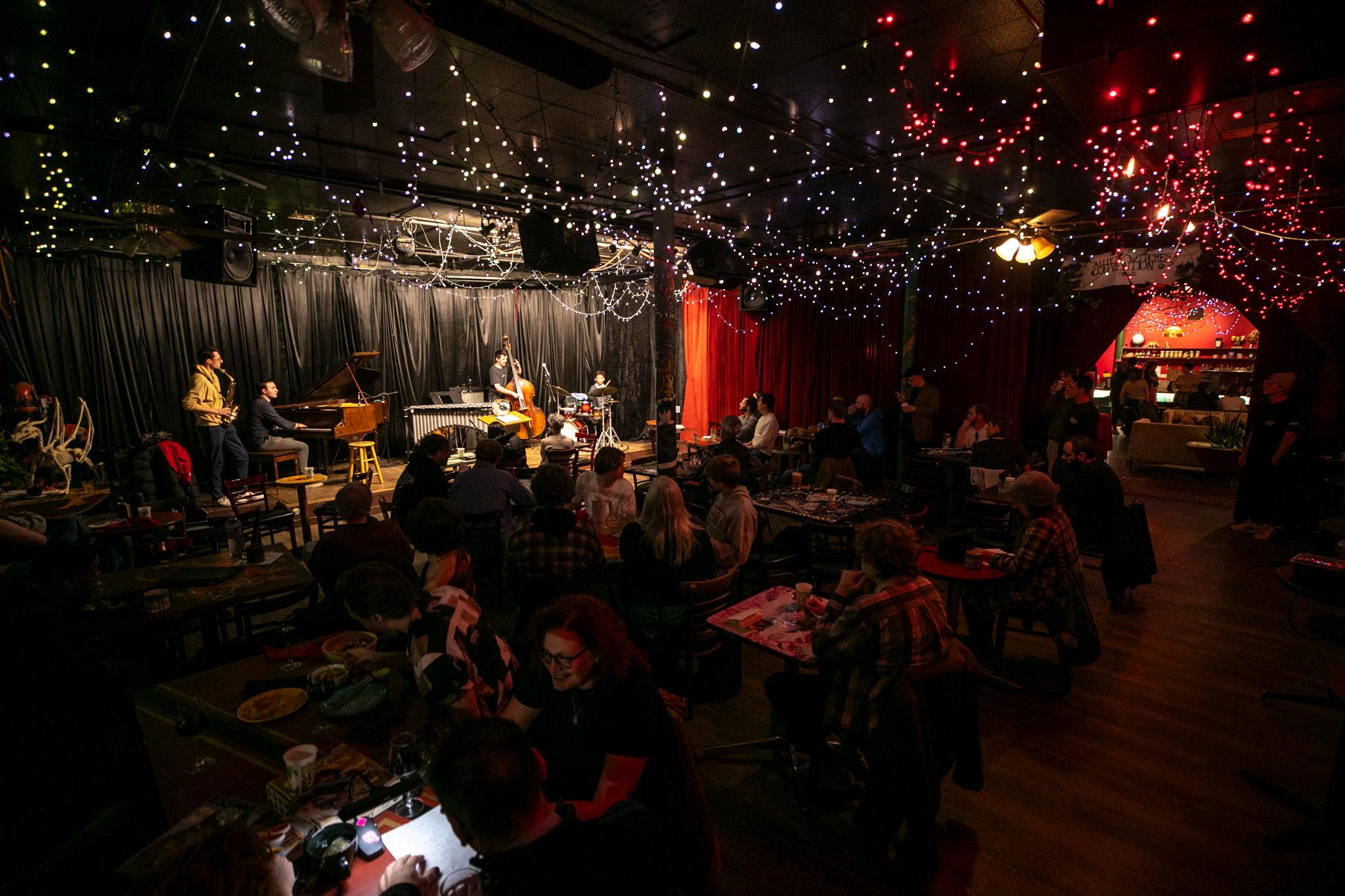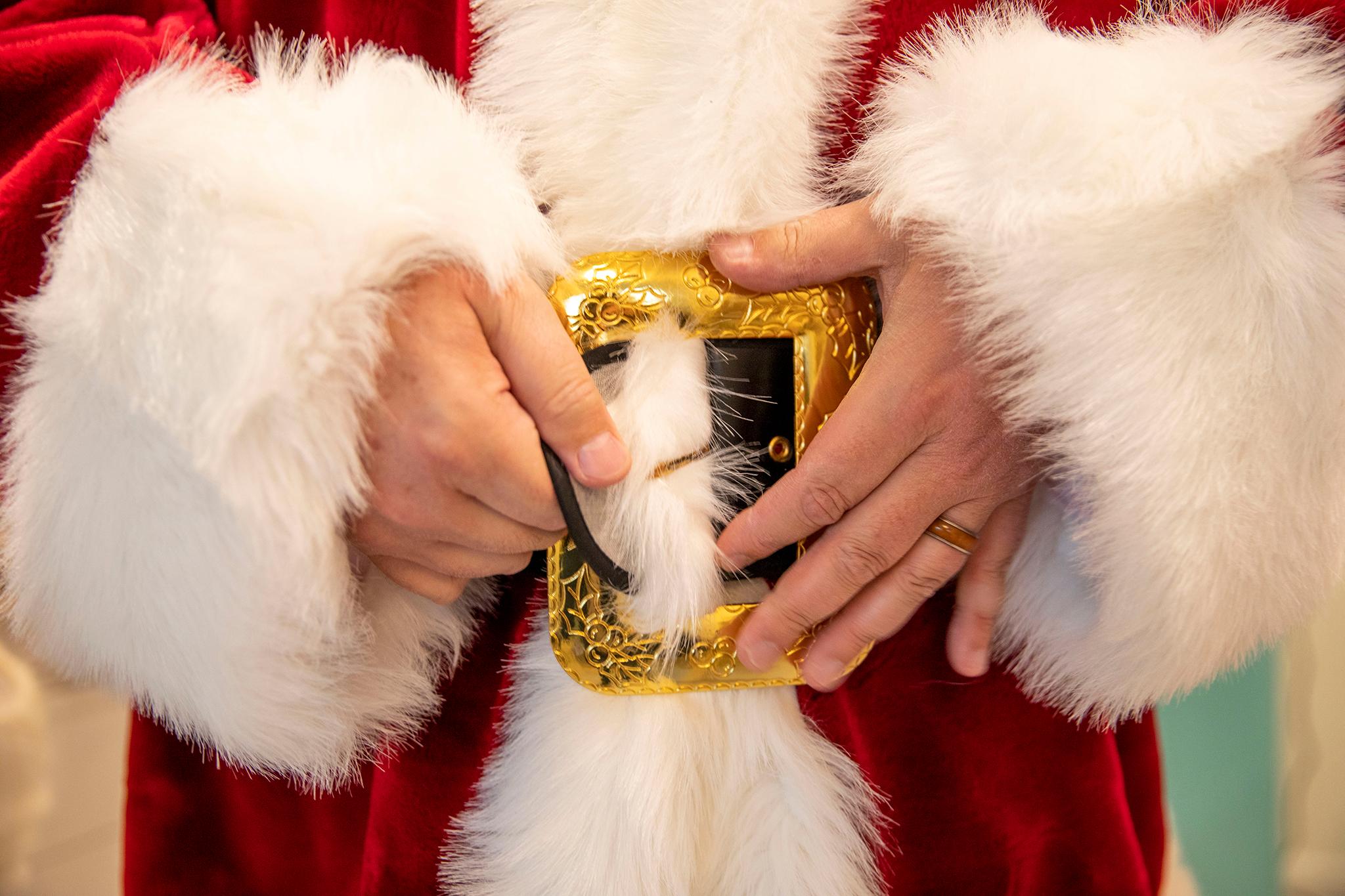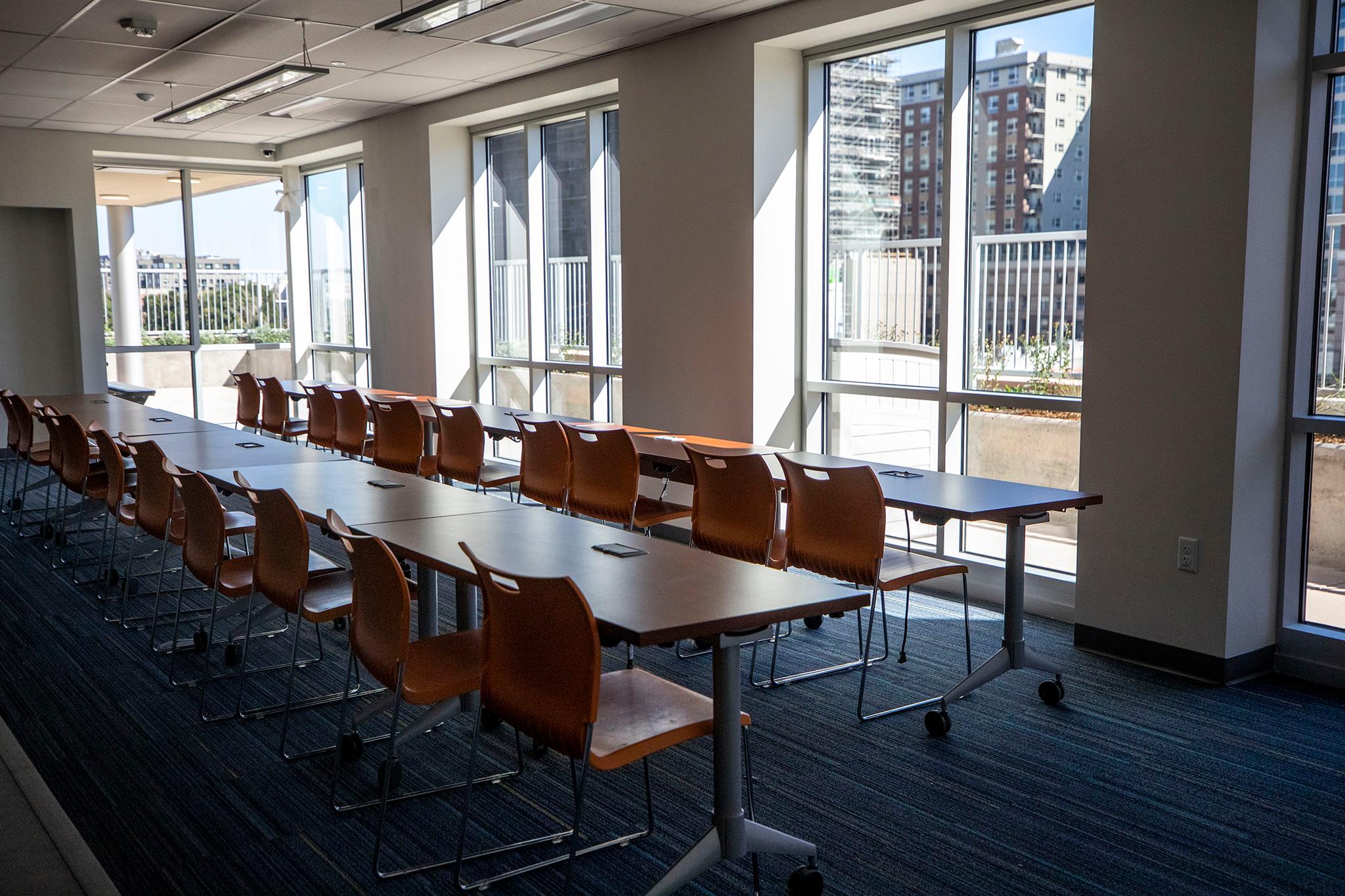Starting in 2017, the Downtown Denver Partnership and city brass dreamed up a big trail circling the city center, something to bring the community alive and connect neighborhoods as disparate as Union Station, the Auraria Campus, the Golden Triangle, Capitol Hill and more.
The hope was to create something like the Indianapolis Cultural Trail to make Denver's city center more desirable. There would be public art, green space, sweeping views of the mountains, downtown and historic landmarks, and new public spaces.
It was the sort of trendy, tourist-magnet project that past Mayor Michael Hancock's administration embraced when Denver's economy was booming and the city was making national headlines as one of the country's best cities.
The promises of the trail, as pitched in a 2019 plan, would have solved some of Denver's ills: Crime and traffic accidents would drop. Exercise and air quality would rise. Denverites would become fitter and trimmer. In turn, the theory went, diabetes and asthma rates would decline. More space for the public to relax and engage meant mental health would improve and civic engagement would increase.
But six years in, the effort to build out the trail has had more than a few bumps, with still no end in sight.
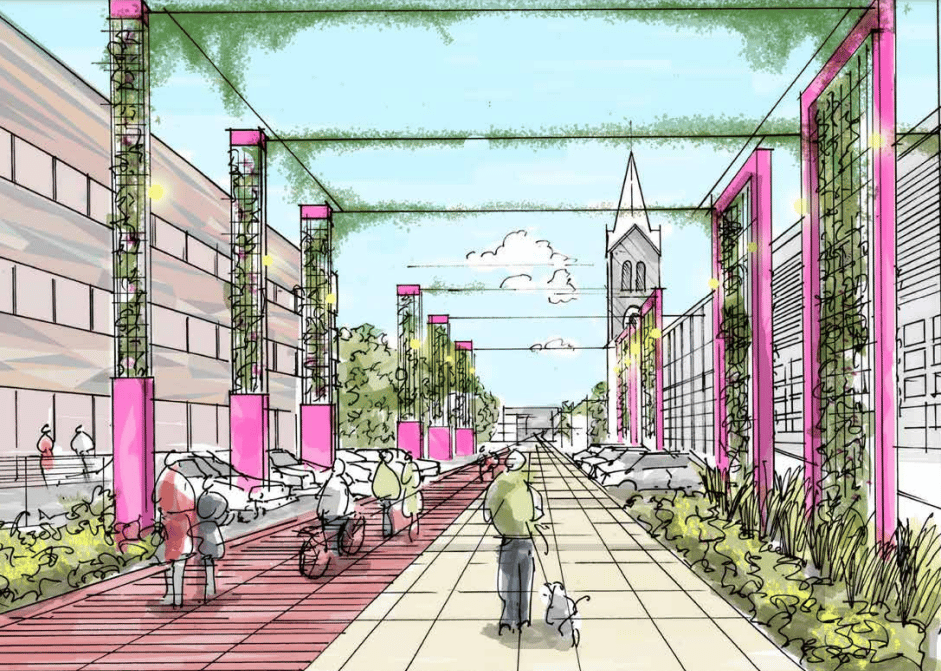
The desirability of new public space for all Denverites -- including people living in poverty, struggling with mental health and addiction, and sleeping on the streets -- came into question as city boosters saw who was using the existing ones.
Civic Center Park was fenced off to remove an encampment. In turn, unhoused residents moved to Union Station. Then Hancock started a crackdown at the Union Station bus terminal. The Great Hall was patrolled with private security guards, and signs were put up to notify people that the comfortable seats were for paying customers only. Structures in a plaza behind Union Station, which people had been using as benches, were demolished, as neighbors who had moved into new, expensive condos raised concerns with the city about their safety.
Despite the struggles of the city center, in 2021, voters decided to fund some of the first segments of what was dubbed the 5280 Trail with $7 million in taxpayer dollars.
The trail would include 5.280 miles of dedicated pathways around Downtown, connecting central neighborhoods for bikers, pedestrians and other non-car users. The first section the public funded was on Acoma St. in the Golden Triangle.
But in recent years, the buzz around the 5280 Trail has been muffled, as city boosters' have looked to other projects.
As Mayor Michael Hancock's administration was leaving office, the city's planning department, Community Planning and Development, was waffling over whether the 5280 Trail should ever come to fruition.
The department, then helmed by Laura Aldrete, told new Mayor Mike Johnston as much, in a document Denverite obtained.
According to the department, priorities had shifted.
While Downtown still mattered to the planning department -- more so as workers stayed away from the office even after the pandemic emergency had ended -- the agency had decided to focus more attention on creating "high quality public streets with a strong sense of place" at separate locations such as:
• 21st Street in the Ballpark neighborhood
• Acoma Street in the Golden Triangle neighborhood
• 16th Street Mall renovation
• Larimer Street reconstruction
• 14th/Speer Streetscape improvements
• 17th St. Protected Bike Lane
• Blake & Market Investments
• Sherman Street near 18th Avenue
Many of these projects are already in various stages of development or construction. And some would be wrapped in to the trail, were it to be created.
But the planning department was speaking about the 5280 Trail as though it wasn't a guaranteed project voters had approved by name.
"These streets could one day be part of the envisioned 5280 trail, which was planned to connect many city center neighborhoods," the planning department wrote to the new mayor. "However, for now, our resources are first focused on how to make streets like 21st St, Acoma, and Sherman become great urban outdoor places contributing to a thriving downtown neighborhood that is a desirable place to live and more resilient in uncertain times.
"While the 5280 trail itself may come further into the future, we are excited about the ability to leverage both public and private development into tangible mobility improvements for our residents today, and believe this work needs to be prioritized above planning/building the Trail," the agency concluded.
Despite this shift in priorities in Community Planning and Development, some city leaders maintain their commitment to the trail.
On Sept. 6, the Downtown Denver Partnership decommissioned the executive committee working on the development of the trail, noting that around a quarter of it is already in some stage of pre-development or development.
Now the business booster group is creating a standalone nonprofit to helm the development of the loop.
More funds still need to be raised. Design and development work needs to continue. And the community's input will still be included in the project, according to a letter to former committee members from Andrew Iltis, the vice president for planning and community impact for the partnership.
Councilmember Chris Hinds, who served on the executive committee and represents District 10 and the Golden Triangle neighborhood, where much of the work is currently being done, says the project is back on track under the new administration.
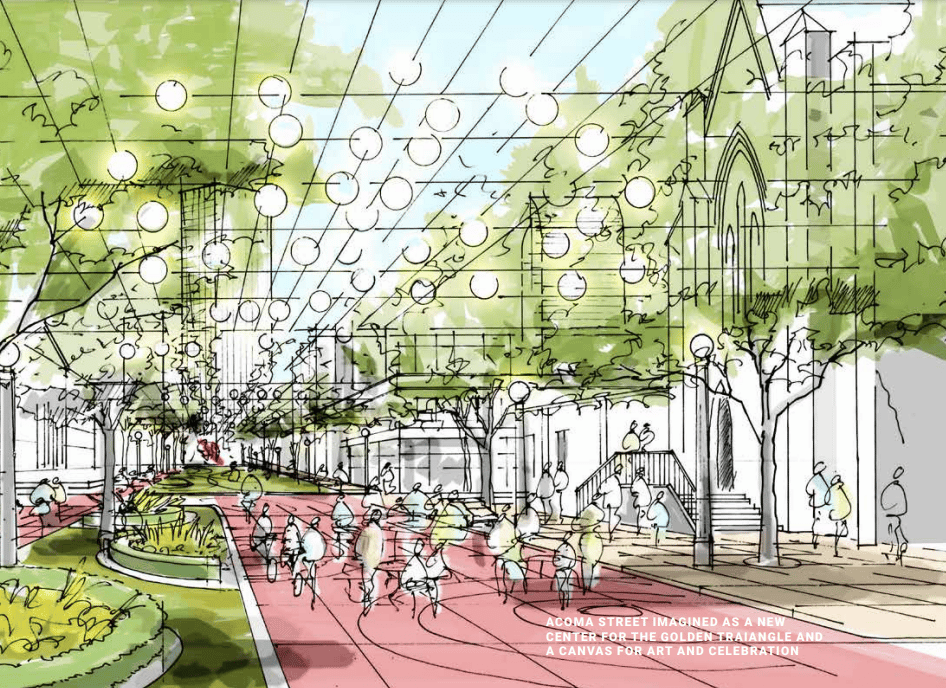
As the best polling project in District 10, its completion is a priority for him, Hinds said, and he has Mayor Johnston's support on the project.
Johnston's spokesperson, Jordan Fuja, told Denverite the mayor is "excited for the 5280 Trail and is exploring options to continue work on this project."
"The will of the people will move forward," Hinds told Denverite. "The 5280 Trail is definitely something that I am committed to on behalf of District 10. The mayor has reaffirmed the city's commitment to the 5280 Trail, and we are all very excited about the first fully realized segment of the 5280 Trail."
District 10 is having a friendly competition with the Auraria Campus over which part of town will boast the first completed section of the trail: the section on the campus or the voter-funded Golden Triangle stretch between 10th and 12th avenues on Acoma St., according to Hinds.
"The goal is for that segment to be so amazing that people will be so jealous of it that they'll demand their segment of the 5280 Trail as well," Hinds said.

